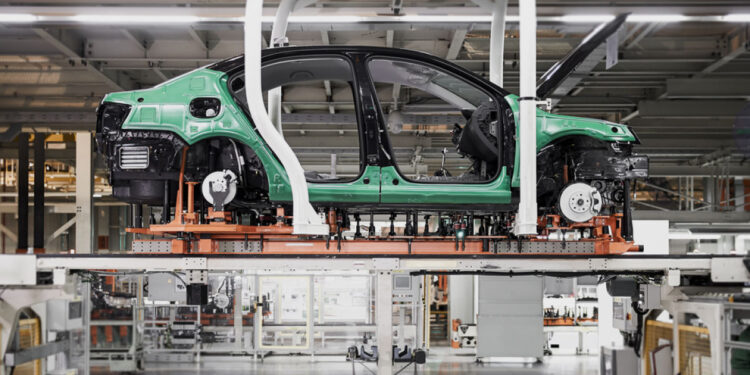During the pandemic, the entire world depended on smartphones, computers, and laptops for work or recreation. This, therefore, has spiked the demand which led to a boom in the tech supply chain. Though, the giants in the business like Intel, Samsung Electronics, Taiwan Semiconductor Manufacturing Co, and Qualcomm, etc. have manufactured components to supply enough for the rising demand they couldn’t keep up with the surge.
As a result of the lockdown, the demand for automobiles declined and the production also halted however the auto industry failed to focus on the aftermath of the pandemic. As the Covid-19 restrictions eased there has been a surge in demand for automobiles, on the contrary, the supply couldn’t match up to the need.
The production of chips crashed as the major companies cut down the production which led to massive revenue loss. Decisions of halting the production in the major companies in Japan by Honda Motor Co, cutting the shifts in Germany and England factories by BMW AG, similar trends in Ford Motor Co. to cut the annual earnings until next year as well, as the chips productions are falling short. Adding to it, the Caterpillar Inc. informed drop in supplying equipment to mining and construction industries.
The modern automobile uses semiconductors; features like power steering, wifi, display, and others depend on chips, as per a report around 40% of a new car’s cost adds up from the electronics used in it.
Due to the shortage this year Ford expects a low production by 1.1 million vehicles with an estimation of $2.5 billion hit.
While Tesla Inc. considers chip scarcity a “huge problem.” NXP Semiconductors NV advised the impact will be seen until 2022.
Although the phones and laptops companies that reaped benefits in the pandemic are also facing challenges due to the chips crash. Regarding the situation, Apple Chief Financial Officer Luca Maestri cautioned that it might hit around $4 billion in revenue in the third quarter.
Nevertheless, due to the spike in demand for the chips, suppliers are ready to invest billions to keep up the momentum. Approximately $40 billion of the auto industry is spent on the chips itself.
According to experts several reasons for the dearth of chips dampen the auto industry keeping an ample number of factories in an idle state.


















